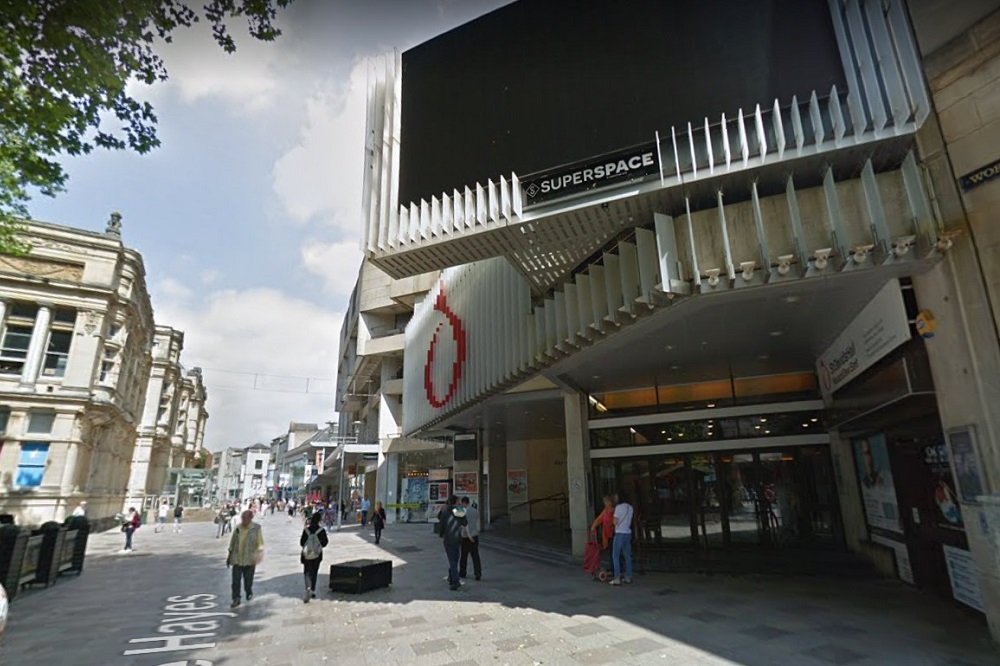The fight for St David’s Hall: What is being proposed and why are people fighting it?

Ted Peskett, local democracy reporter
The noise surrounding the future of one of Cardiff’s best known music venues has steadily been growing into a crescendo over the past few weeks.
Cardiff Council revealed last month that it had received an offer from Academy Music Group (AMG), the company which operates the O2 Academy venues across the country, to take on the running of St David’s Hall.
The council said that operating the concert hall, which is best known for its status as Cardiff’s main classical music venue, costs the authority £1 million per year.
With a repairs bill reaching into the millions, and with the prospect of a £53 million hole in its budget for next year, the council is looking for someone to take on the running of the building.
However, the news of a potential takeover has not gone down well. A petition calling for the protection St David’s Hall and its status as Cardiff’s classical music venue has reached over 20,700 signatures.
So, what would a takeover mean for St David’s Hall and why has it been met with so much opposition?
What would a takeover look like?
A takeover of St David’s Hall by AMG would not mean a sale of the building itself, according to Cardiff Council.
The authority said that it would retain the freehold ownership. This means they will still own the building.
If AMG’s proposal is accepted, it would enter into a long-term property lease and would take over the maintenance and any future upgrades of St David’s Hall. This would free the council from having to pay a subsidy towards the building.
The allocated revenue subsidy from the Council for St David’s Hall is £688,700 in the current year, according to draft cabinet report that was published recently.
A line in the same report states: “However, the venue regularly achieves lower box office revenue than forecast and as such the actual level of Council financial support regularly exceeds £1m per annum.”

Alterations to the building
If AMG take over the running of the building, there would be alterations to the interior.
This includes replacing the seating. According to Cardiff Council, AMG’s proposal is to use palleted removable seating, rather than retractable seating. This would allow seating to be removed to create a standing area for pop and rock concerts.
The classical programme
In terms of what might happen to the venue’s classical music programme, Cardiff Council said that AMG has set aside 60 days during the peak event period (September to May) to accommodate it, with “additional dates in the calendar year for other key classical and community events”.
At the moment, the concert hall’s classical programme, classical-related community events, and the work of the Arts Active Trust, utilises up to 73 days.
The council also said that this programme would not be limited to 60 days and that remaining classical events and the wider community programme that cannot be accommodated within these slots will be arranged around the commercial event programme throughout the calendar year.
Jobs
According to the council all council staff at St David’s Hall would be protected under Transfer of Undertakings (Protection and Employment) regulations as part of the proposal.
This means that employees will transfer over to AMG on the same terms and conditions that they have with the council.
The council also said that staff involved with Arts Active will remain employed by the authority.
Other options
Next week, the council’s cabinet will consider the options for the future of St David’s Hall, including a possible takeover by AMG. A draft cabinet report states that the takeover by AMG is the “preferred option”.
A business case on the future of St David’s Hall, considered by specialist consultants appointed by Cardiff Council, is also based on two additional options.
These include:
Considering a opportunities for a continued in-house operational model to address the current subsidy that the council has to pay and to tackle the maintenance backlog of the building
Considering the possibility of undertaking a public procurement exercise to see whether someone else could take on the running of the hall and provide improved value
Why are people concerned about the potential takeover?
Chief among the concerns that have been expressed by members of the public, employees at the venue and local councillors are the perceived threat that the takeover poses to the concert hall’s status and the possible impact that any work on the building could have on its revered acoustics.
At a recent full Cardiff Council meeting, Cllr Leonora Thomson said: “The acoustic of St David’s Hall is absolutely fantastic. I have got a friend who toured recently with the Belgian National Orchestra, and they had a big UK tour.
“They toured to The Usher Hall in Edinburgh, They went to The Bridgewater Hall in Manchester, the town hall in Cheltenham, Sage Gateshead and the Symphony Hall in Birmingham. All the top concert halls.
“They were all in agreement that actually the St David’s Hall acoustic was the best of the entire tour, and there are concerns that have been expressed to me by people in the arts sector that actually with the changes that might be proposed, that the acoustic could be affected.”
Cllr Thomson asked how the council was going to safeguard the acoustics.
At the time, the cabinet member for culture, parks and events, Cllr Jennifer Burke-Davies, said: “We are aware of the passion surrounding the hall, in particular the acoustics for the building.
“Any proposal for the building would have to satisfy the council that the hall’s reputation for a world class acoustics would be maintained, but again until we have more information in December in cabinet then I wouldn’t be able to say to much now, but we are aware.”
Cardiff Council also revealed that the acoustic engineers involved in designing the building, Sandy Brown, said that the proposed alterations “should have no noticeable impact on acoustic quality”.
Job losses
Concerns have also been expressed by employees at the venue over potential job losses.
A member of agency staff who works at St David’s Hall set up the petition calling for the protection of venue’s status and classical music programme.
The petitioner expressed deep concerns about the future of the venue’s community programme and the potential impact of a takeover on Arts Active and their programme of arts education for young people.
They also claim that the cost of essential repairs has been inflated by the council, stating: “The reason stated by Cardiff Council for investigating privatisation is the maintenance backlog, a figure quoted by them as £55 million but in actuality more like £9 million.”
Confidential documents that have been circulating on social media also suggest that essential repairs to the roof would only cost £2.1 million.
In response to this, Cardiff Council said: “A small section of the conditions survey is being quoted and is giving a misleading picture of the scale of works required.
“Other essential works, such as replacing or upgrading mechanical and electrical installations means the likely maintenance costs needed, in the short term alone, is considerably higher.”
According to the draft cabinet report on St David’s Hall, AMG’s offer includes “protecting the classical and community programme, protecting the acoustic value of the auditorium and securing existing jobs”.
The full extent of how AMG propose to do this is not understood yet as the full details of their proposal is still confined to confidential documents, which will also be considered by cabinet members next week.
What’s next?
Before the report on potential options for St David’s Hall is discussed by Cardiff Council’s cabinet members, it will be looked at by a scrutiny committee on Monday December 12.
Cabinet will discuss the future operation of the venue and the proposal made by AMG on Thursday December 15.
Members will decide whether or not to approve in principle the offer made by AMG.
Final approval of any lease would be subject to a further Cabinet report following public consultation as part of the Council’s budget setting process.
Support our Nation today
For the price of a cup of coffee a month you can help us create an independent, not-for-profit, national news service for the people of Wales, by the people of Wales.





Not going with the Academy (AMG) offer would I think be a missed opportunity. Those opposed appear to offer little in the way of an alternative beyond an almost nostalgic idea that the Hall can remain in public hands, be handed more money and simply improve. All backed up by a petition based on incorrect assertions about the AMG deal. If there are safeguards in the contract the AMG route appears to mean more and better events and improved facilities for the people of Cardiff and Wales, as opposed to a facility which has been declining for years.
You make fair points, and everything you say may be true. The trouble is the secrecy surrounding the proposals means it is very difficult to reach a balanced judgement. The fact that the council appears to have been negotiating in secret, and also appears to have been less than truthful about this, means that their case will be treated with considerable scepticism until they can show open and plain dealing.
Fair points
It’s a great venue. But with a new venue in the bay on the cards, it needs someone to take it forward to compete better and make a profit. These costs ncil venues need to break even, not suck Council tax dry. Nostalgia is no good here, it could end with closure, if not careful.